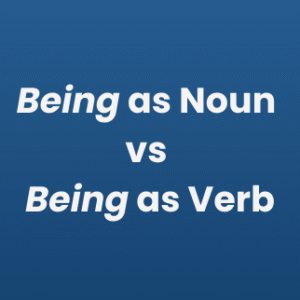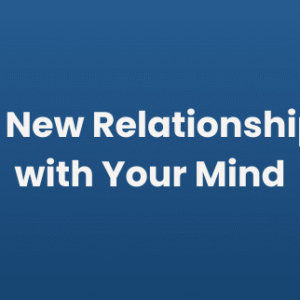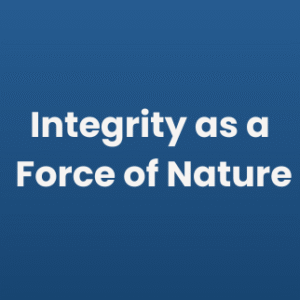I was going through my coaching logs today and noticed that the list of leaders I’ve coached professionally has exceeded 100. These are people at different levels in the corporate ladder, playing different roles – from a management trainee to a CEO. I sat down thinking about what the most profound and uncommon things were that I have noticed in this journey so far. Of course there were too many, but here are 5 that I have picked. If you are a coach, read on and allow these to challenge the way you see the world.
1) There’s no such thing as a leader.
Don’t just coach leaders. Look at the human being trying to make their way through life. Even better, look at life expressing itself through a person. Rest all are labels – limitations created by our imagination. Discard them, and your clients will thank you for it. I’ve come across coaches who boast about only coaching senior executives. There’s nothing nobler about coaching CXOs. I’ve coached a few myself, and they are people, just like you and me – people who think and act based on what they think. There’s no reason to discriminate them based on their role.
You can only see in other people what you already see in yourself. If you think you are an Executive Coach, then you’ll see executive clients. If you see yourself as the infinite potential that you really are, you’ll see that in everyone else too.
2) Fundamentals are not Basics. Master the Fundamentals.
No, this does not mean mastering arbitrary coaching competencies or affiliations with coaching organizations. Coaching competencies are the basics of how coaching works. Fundamentals are what’s true at the deepest level, underneath everything that we experience. Enquire into fundamental principles behind how human beings operate – into the basic workings of what we call our life and our reality. I spent over a decade looking at it from multiple angles just to be sure of what I was seeing – Neuroscience, Physiology, Systems Thinking, Psychology, Spirituality, Philosophy, Quantum Physics, Mathematics, Language. When you look carefully, all of these seemingly different fields of study converge, and at their intersection, all secrets are revealed.
Find out what makes the biggest difference. Master accessing this well of wisdom. And master helping people access it for themselves with the help of coaching. Don’t just master coaching competencies. Master changing people’s lives.
3) See through the stories you tell yourself about coaching certifications.
They all can be useful. But even the most prestigious ones at times might not really be what they seem to be. If you want to learn coaching, by all means do formal training. Maybe, don’t stop with one particular school of coaching. Keep exploring more. Think of them as training wheels for when you are learning to ride a bicycle. The training wheels are great if you’re still at the beginning stages and are just enjoying riding. But all these methodologies and approaches can also be a limitation than a leverage if you want to be a pro coach looking to make a significant tangible difference for your clients.
Everyone wearing the training wheels will be able to ride more or less the same way. And it’s not necessarily the way that creates the most impact. Your clients are only really seeing if you get them, and if you can help them with their challenges.
Realize that the rules taught in training can be useful, but are not definitive. Learn the rules, so that you can embody their principles and move beyond rigidity.
4) Consider stopping using peer-coaching for clocking more hours.
Peer coaching is great for practice, but know that peer coaching conversations are at times not real coaching conversations. Most peer coaches understand coaching, have a degree of awareness, and are in the session not just to get coached but sometimes to help you develop as a coach.
The clients who pay you have little idea about coaching, and they do not care if you are hitting benchmarks. All they care about is whether or not you’re helping them enough for them to invest their time and money into the coaching relationship. In real coaching sessions, the expectations are very different, and the level of impact that needs to be created can be very high relative to peer coaching. I’ve seen highly trained coaches complain about how clients do not display proper commitment to their coaching sessions. It is easy to not notice that there’s no reason for them to stay committed if the coach cannot deliver the kind of results they want.
One of the biggest client turn-offs is a coach who is more interested in being a coach (enacting the rules from training) than in getting the client to where they really want to be.
5) There’s a difference between an Experienced Coach and an Expert Coach.
An experienced coach is not necessarily a great coach. An experienced coach and a great coach are two independent measures which sometimes do not overlap. How many hours you’ve coached does not really speak to your impact. A long time ago, I was invited to participate in peer coaching with an experienced coach. After 2 sessions, it was clear to both of us that their coaching felt like a waste of my time. They were doing everything right for their coaching school and nothing right for me, the client. We agreed that we stop doing peer coaching, and a month later, they enrolled as my client.
Investing into your own coach is a great way of finding out what it feels like to be a client. And it is an integral part of becoming a more impactful coach. I’ve worked with all kinds of coaches over the years, and fired a few too. Some of them have formal credentials, some of them do not.
To this day, I spend 90 minutes with one of my coaches every month. She is based out of Germany, is not credentialed by any coaching associations, and does not have thousands of hours of experience. I work with her because she is a great coach who consistently challenges and expands how I create my reality – and makes an observable and tangible difference in my life.
The measure of greatness for a coach is not just experience. It is also insight, grounding and fearlessness in coaching. An insightful coach is sometimes provocative, in a good way, but that’s the point. Anybody else that you hire can be your yes-person, but not your coach.
Coaching at this level of expertise requires conscious work. Experience can be the easy part – it happens by itself if you just give it enough time.




